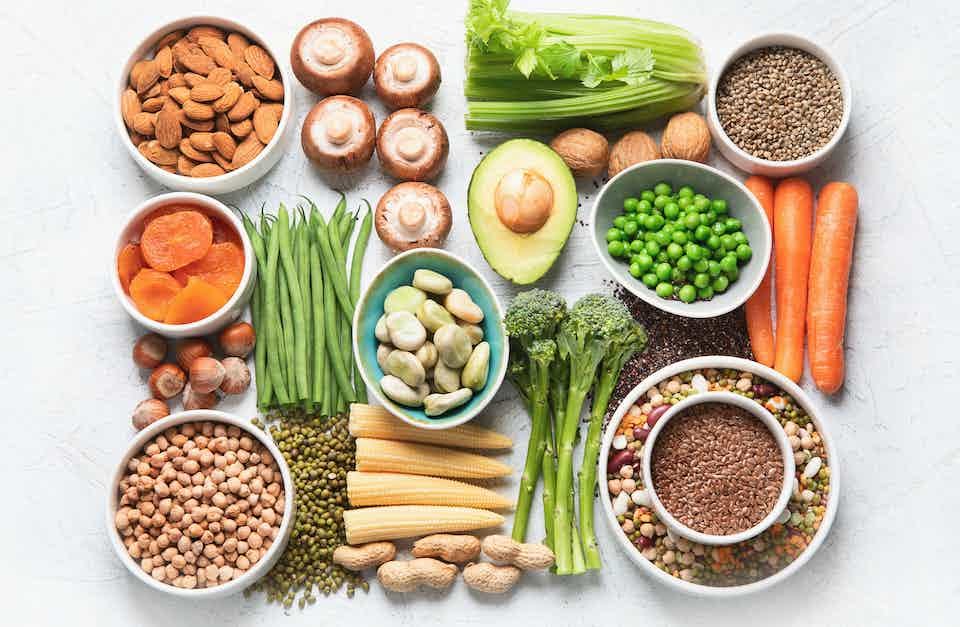Things You Should Know About Vegan Diet

A vegan diet is a plant-based diet that excludes all animal products, including meat, dairy, eggs, and honey. While veganism was once considered a fringe lifestyle, it has become increasingly popular in recent years, with more and more people embracing plant-based eating for ethical, environmental, and health reasons. In this blog post, we’ll dive into everything you need to know about going vegan, including the benefits, potential challenges, and tips for making the transition.

Benefits of a Vegan Diet
There are many benefits to adopting a vegan diet. Here are some of the most significant benefits:
- Improved health: Studies have shown that a vegan diet can reduce the risk of chronic diseases such as heart disease, type 2 diabetes, and some types of cancer. A plant-based diet is also associated with lower blood pressure and lower levels of bad cholesterol.
- Weight loss: A vegan diet can help with weight loss and weight management. Plant-based foods are often lower in calories and higher in fiber, which can help you feel full and satisfied without overeating.
- Better digestion: A vegan diet is high in fiber, which can improve digestion and prevent constipation.
- Environmental benefits: Animal agriculture is a leading cause of deforestation, water pollution, and greenhouse gas emissions. Adopting a vegan diet can help reduce your environmental impact and help protect the planet.
- Ethical considerations: Many people choose to adopt a vegan diet due to ethical considerations. By avoiding animal products, vegans can help reduce animal suffering and exploitation.
- Variety of food options: Contrary to popular belief, there is a wide variety of plant-based foods available that can provide all the necessary nutrients. Vegan diets can be varied and delicious, including fruits, vegetables, whole grains, nuts, seeds, legumes, and more.
- Increased energy: A vegan diet can lead to increased energy levels and improved overall well-being. Plant-based foods are rich in vitamins, minerals, and antioxidants, which can support optimal health and vitality.
These are just some of the many benefits of a vegan diet. By adopting a plant-based lifestyle, you can improve your health, reduce your environmental impact, and contribute to a more compassionate world.
Challenges of a Vegan Diet
While there are many benefits to a vegan diet, there are also some challenges that come with it. Here are some of the common challenges of a vegan diet:
- Nutrient deficiencies: A vegan diet can be low in certain nutrients, such as vitamin B12, vitamin D, calcium, iron, and omega-3 fatty acids. It is important for vegans to make sure they are getting enough of these nutrients through supplements or fortified foods.
- Social situations: Eating out or attending social events can be difficult for vegans. Many restaurants and social events may not offer vegan options, which can make it challenging to stick to a vegan diet.
- Meal planning: A vegan diet requires careful meal planning to ensure that you are getting all the nutrients you need. This can be time-consuming and require more effort than a non-vegan diet.
- Cost: Some vegan specialty items, such as plant-based meat alternatives or non-dairy milk, can be more expensive than their non-vegan counterparts. This can make it challenging for those on a tight budget to maintain a vegan diet.
- Cravings: Some people may experience cravings for animal products when transitioning to a vegan diet. It may take some time to adjust to the taste and texture of plant-based alternatives.
- Social stigma: Unfortunately, there is still some social stigma attached to veganism, with some people viewing it as extreme or unnecessary. This can make it challenging for vegans to navigate social situations and deal with negative comments or attitudes.
While these challenges may seem daunting, they can be overcome with careful planning, research, and support. By educating yourself, seeking out vegan-friendly social situations, meal planning, finding cost-effective options, exploring plant-based alternatives, and seeking out support from other vegans, you can successfully navigate the challenges of a vegan diet and enjoy its many benefits.
Tips for Transitioning to a Vegan Diet
If you’re interested in transitioning to a vegan diet, here are some tips to help you get started:
- Take it Slow: Transitioning to a vegan diet doesn’t have to happen overnight. You can start by making small changes, such as swapping out dairy milk for plant-based milk or incorporating more vegetables into your meals.
- Educate Yourself: Learn as much as you can about veganism, including the nutritional benefits, potential challenges, and ethical considerations. There are many resources available online and in books that can help you make informed decisions.
- Experiment with New Foods: Trying new foods and recipes can make the transition to a vegan diet more enjoyable and exciting. There are many delicious and satisfying plant-based meals to choose from.
- Find Support: Surround yourself with like-minded individuals who can offer support and encouragement as you make the transition to a vegan diet. This can include friends, family, online communities, and local vegan groups.
Adapting vegan
Adapting to a vegan lifestyle can be challenging, but it is entirely possible with some patience and effort. Here are some steps to help you adapt to a vegan lifestyle:
- Educate yourself: Read up on the benefits of a vegan lifestyle and the impact of animal agriculture on the environment. This will give you a better understanding of why you are making the switch and will help you stay motivated.
- Start slow: It can be overwhelming to switch to a vegan lifestyle all at once. Start by gradually eliminating animal products from your diet, such as meat, dairy, and eggs. Replace them with plant-based alternatives such as tofu, tempeh, nuts, seeds, and legumes.
- Experiment with recipes: Trying out new recipes is a great way to stay motivated and find new vegan meals that you enjoy. There are many vegan cookbooks and websites with recipes for every type of meal.
- Learn about vegan nutrition: It is important to make sure you are getting all the nutrients you need on a vegan diet. Research vegan sources of protein, calcium, iron, and other essential nutrients to make sure you are eating a balanced diet.
- Find support: Join vegan communities online or in person to connect with others who are also making the transition. They can offer advice, support, and encouragement as you adapt to a vegan lifestyle.
- Be kind to yourself: Adapting to a vegan lifestyle is a process, and it is okay to make mistakes or slip up. Be patient with yourself and remember that every effort counts.
Switching to a vegan lifestyle may be challenging at first, but it can be a rewarding and fulfilling experience. By educating yourself, starting slow, experimenting with recipes, learning about vegan nutrition, finding support, and being kind to yourself, you can successfully adapt to a vegan lifestyle.
At the end
A vegan diet is a powerful way to promote health, sustainability, and animal welfare. While there may be some challenges to consider, the benefits of a vegan diet far outweigh the potential drawbacks. By taking it slow, educating yourself, experimenting with new foods, and finding support, you can successfully transition to a vegan diet and enjoy all of its benefits.




